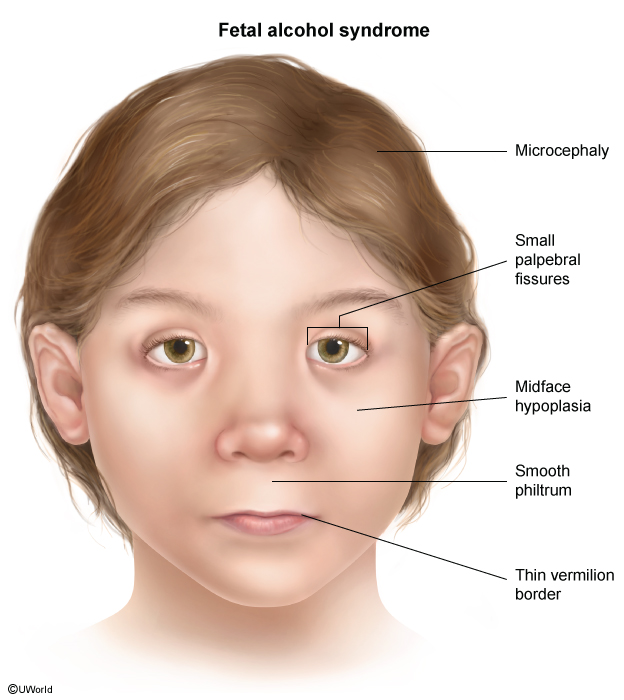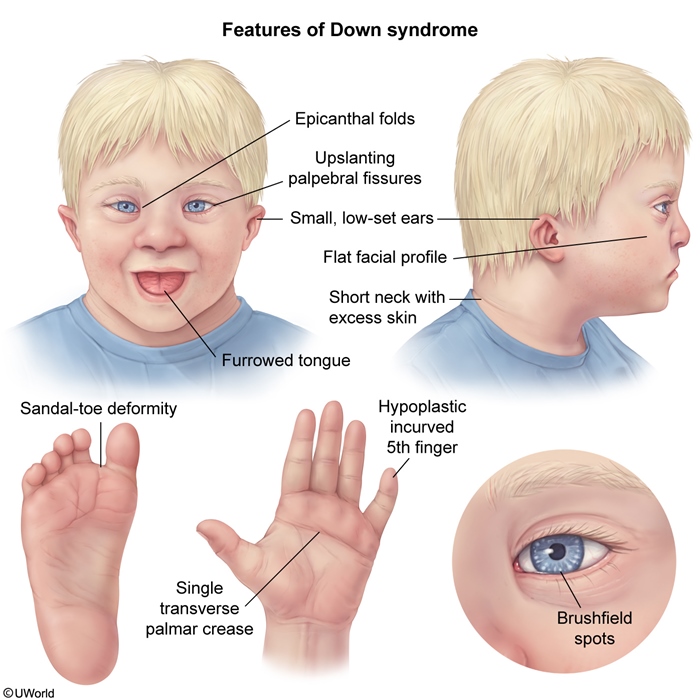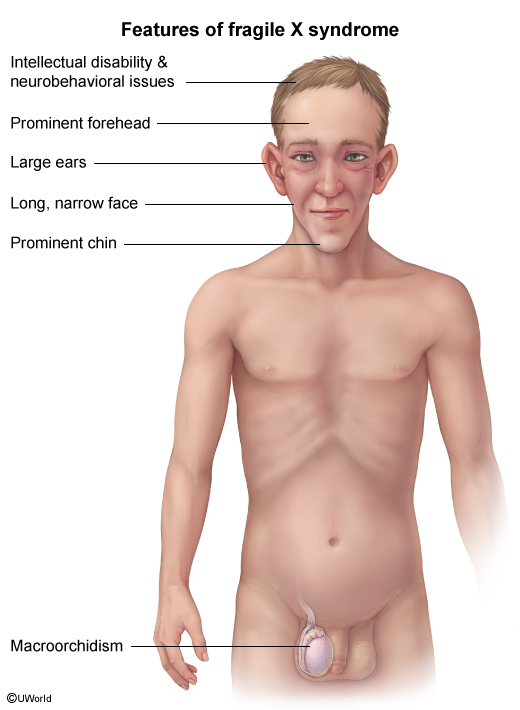Fetal Alcohol Syndrome
Article Sections
Introduction
Fetal alcohol syndrome (FAS) describes the complications in physical and neurobehavioral development caused by alcohol exposure during pregnancy, which can result in lifelong functional challenges. It is characterized by facial dysmorphisms, neurobehavioral impairments, growth deficiencies, and abnormal brain development. FAS is the most common environmental cause of intellectual disability.
Risk factors and prevention
The primary risk factor for developing FAS is maternal consumption of alcohol during pregnancy. There is no known safe amount of alcohol consumption; this is due to variation in drinking patterns (eg, daily consumption vs binge drinking), hepatic clearance, and other unknown factors. Therefore, patients are advised to abstain from alcohol throughout pregnancy.
The primary prevention of FAS development is screening for and providing education about alcohol use in pregnancy. Pregnant women should be screened for alcohol use during at least the initial prenatal visit, with additional screening based on amount consumed and other patient risk factors.
Continue Learning with UWorld
Get the full Fetal Alcohol Syndrome article plus rich visuals, real-world cases, and in-depth insights from medical experts, all available through the UWorld Medical Library.
Unlock Full AccessFigures


